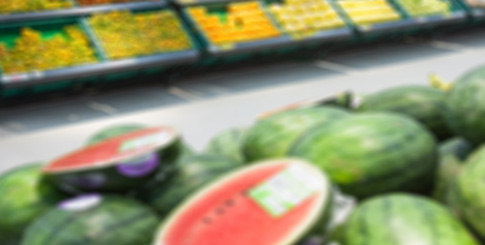Further, Pandol makes another solid point, as he believes the infrastructure required to support a delivery-based economy, from parking to employees, is not in place. “We’re all saying we can’t find enough truck drivers—where are we going to find all the delivery people?”
Benefits to Whole Foods
Whole Foods, meanwhile, certainly had financial reasons for accepting the deal. “Before this happened, Whole Foods was experiencing substantial challenges in its own performance,” confirms McLaughlin, citing a 50 percent drop in stock price from its 2013 peak. “Amazon threw it a lifeline,” he says. This is evidenced by Amazon’s 2017 full-year financial results, which showed physical store revenue (mainly comprised of Whole Foods), at $4.5 billion.
Livingston has a different point of view: “I think the primary reason for the acquisition was to scare competitors into making irrational and costly decisions.” These decisions, he notes, “will turn out badly and have a negative financial impact, weakening their position, and then [forcing the closure] of stores.”
Wall Street seemed to agree the Amazon-Whole Foods deal was not optimal for the supermarket sector after the purchase. “The biggest negative impact is that [the deal] has discouraged investor interest in grocery,” states Bishop. “To me, this was an unfortunate overreaction.”
What the Future Holds
Although the long-term implications of the Amazon-Whole Foods deal are still indecipherable, is Amazon still in an acquisitive mood? Target Corporation and Carrefour have been mentioned as possible takeover targets, while others have pegged grocery chains without a substantial online presence such as Kroger, Hy-Vee, and Publix as being ripe for M&A activity.
“How long will a company be relevant in the minds of consumers if it only has a bricks-and-mortar presence?” asks Peterson. “Being a standalone bricks-and-mortar operation is not a viable solution long term.”
While the significance of the Whole Foods deal, along with other moves by Amazon is a matter of debate, many in the industry believe it is indeed a game-changer. Could a name change be in the future, to reflect Whole Foods’ new identity, like Amazon Foods? Or will the grocery landscape settle down a bit this year? “It’ll be important to watch what Amazon does,” concludes Bishop, “because it has the scale, capability, and commitment to radically impact the grocery marketplace.”
Image: ideatraveller/Shutterstock.com



